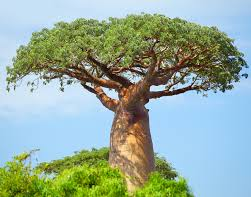Securing the History of Self: What of Credible History?
- By kwende ukaidi
- •
- 01 Oct, 2024
- •
Celebrating the Great Afrikan History Continuum

Afrikan souls have both the
natural ability and natural right to validate their own historical experiences
and the relevant levels of learning that go with that validation as a part of their
functional norm. These are necessary activities to establish and access Afrikan
history in its rightful state of credibility in service of Afrikan continual ascension
and security. Thus, the responsibility for the provision of credible history rests
firmly upon Afrikan shoulders as it is Afrikan souls themselves who hold the preserve
of their own betterment empowered by their authentic history continuum.
So, what does credible history mean? According to a contemporary mainstream source credible attracts the following detail in general terms:
“offering reasonable grounds for being believed or trusted. credible evidence. a credible source”.
Other mainstream sources offer detail on the classification on way in which historical information is gleaned. One such example, provides a description of information gleaned from a primary source:
“A primary source is material that records a first-hand account of an event and are usually produced by people who witnessed or were involved with the event. Primary sources can also include sources created at the time of an event but are not first-hand accounts, such as newspaper or magazine articles”.
Of course, in a state of interruption and disruption where Afrikan souls can be destructively set upon in a host of ways, the recovery, restoration and self-determined learning and development that naturally comes from credible Afrikan history can be acutely challenging. Indeed, others may seek to establish themselves as the exclusive ‘authorities’ on all history and all historical learning – selected, interpreted and disseminated in ways that suit their best interests and to the neglect of the Afrikan souls. It would certainly be a dire travesty if ‘history’ were to be imposed upon Afrikan souls in the guise of being Afrikan, yet contained little or nor relevance to the self-determined experiences of Afrikan souls themselves.
If the only channel for Afrikan souls to access their own history is via the mediums, instruments and institutions of others that mean the Afrikan ill, then a steady diet of falsehood may be the result. Such conditions would be anathema to credibility. Further, if historical fabrications are thrust into realms of popularity that does not make them credible.
Despite the challenges, it is Afrikan souls themselves that can embrace their ever-increasing self-determined authentic, genuine and credible bodies of work that provide necessary content to restore the Afrikan historical past and empower the making of Afrikan history in the present and throughout the tomorrows to come. Great Afrikan-centred thinkers throughout – even – recent generations have produced historical resources in service of Afrikan ascension and security. As such, Afrikan souls can do themselves a great service through study in their own self-determined establishments of learning and development or otherwise and become in some way a part of the credibility of their people’s history. Here, credibility can take be a living, breathing phenomenon shared amongst Afrikan souls whether located here, there or elsewhere.
Afrikan Historia Msimu is an observance period for the duration of the tenth month of the year (so-called October). This is a special time for learning, growth and development of the Afrikan experience in the world. It is a time of spiritual and cultural elevation as Afrikan history is restored to fabric of life in the living knowingness of the then, the now and tomorrow. Great ones of the Afrikan journey are highlighted and the symbols relevant to the time invigorate life in the imperative onward flow of global Afrikan ascendancy. This wonderful observance is a part of the cultural calendar of the Universal Royal Afrikan Nation (URAN).
The Universal Royal Afrikan Nation (URAN) is an Afrikan-centred spiritual and cultural mission for ascendancy that embodies living spiritually and culturally rooted life. To find out more about URAN and its spiritual-cultural mission for liberty and nationhood click here. The exquisite URAN pendant can be obtained online by clicking here.
In his capacity as an Afrikan-centred spiritual cultural practitioner this author is available for further learning in this regard and also for the carrying out of ceremonies such as naming and name reclamation. For details please click here.
Afrikan World Studies programmes are important forms of study in understanding the Afrikan experience. There are a range of subjects covered on these programmes including History, Creative Production, Psychology and Religion. To find out more about these learning programmes please click here. For the video promo for these learning programmes click here.
At nominal cost, also consider acquisition of an a4 laminate poster of articulations by this author when visiting the Yemanja-O establishment to enrol, consult, learn, gather or otherwise.
Also, visit www.u-ran.org for links to Afrikan liberation Love radio programme on Universal Royal Afrikan Radio online.
